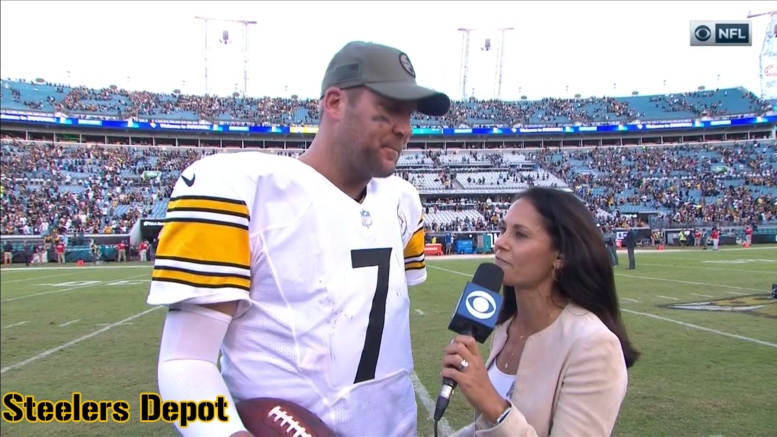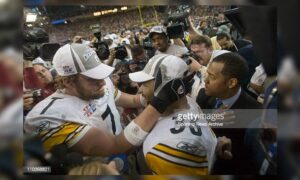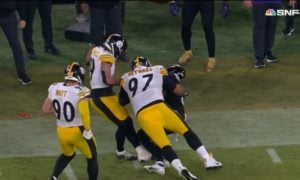It was following a crushing loss to the New England Patriots in 2016 that Pittsburgh Steelers quarterback Ben Roethlisberger began publicly muttering about thoughts of retirement. That loss was the culmination of several years of gradual improvement, and the Patriots had seemed to slam the door shut on hopes of continued advancement on the doorstep of a return trip to the Super Bowl.
While he would walk back his uncertainty a bit more each year, it was only after Randy Fichtner replaced Todd Haley as offensive coordinator that he really started to speak in more longitudinal terms. This was highlighted by his seeming confusion over the team’s selection of Mason Rudolph in last year’s draft.
He said that he thought a player that could help them win now would have better served the organization because he told Art Rooney II and others that he felt physically as though he could play for several more years.
He didn’t put pen to paper on that theory until last month, however, after signing a new two-year contract extension that puts him through the 2021 season and the end of his 30s, should he play beyond that. And according to Albert Breer, Rooney needed to hear it from Roethlisberger himself that he was really committed to that time.
In his latest Monday Morning Quarterback piece, he wrote of a meeting between the two earlier this year, in which Roethlisberger pledged that it was his intention to play for at least the life of this current contract. Does this mean that he was only willing to commit to playing for three more years and that that’s why the extension was only for two more years?
Either way, Breer described Roethlisberger’s verbal commitment to Rooney as “more than just a goodwill offering”. The fact that he would always couch any suggestions of playing longer with the line that he was still going to take everything one year at a time is no doubt one of the reasons the team has been interested in the quarterback classes of the past few years.
Breer also interestingly notes that the two sides were in contract discussions last season, but the talks were broken off following Aaron Rodgers’ deal, which reset the quarterback market. Russell Wilson did so once again this offseason. Roethlisberger’s new-money value ultimately fell in between the two.
Anybody who even entertained an inkling of Roethlisberger taking some sort of hometown discount—and I include myself in that group—was clearly mistaken, made more obvious in hindsight. But there’s nothing wrong with the most important player on the team being paid his market value.
And that only came about after the organization received assurances that the contract being offered would be honored. What will come about in 2021 as he’s heading into the final year of his deal again? Only time will tell.








